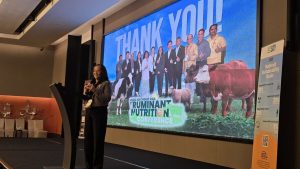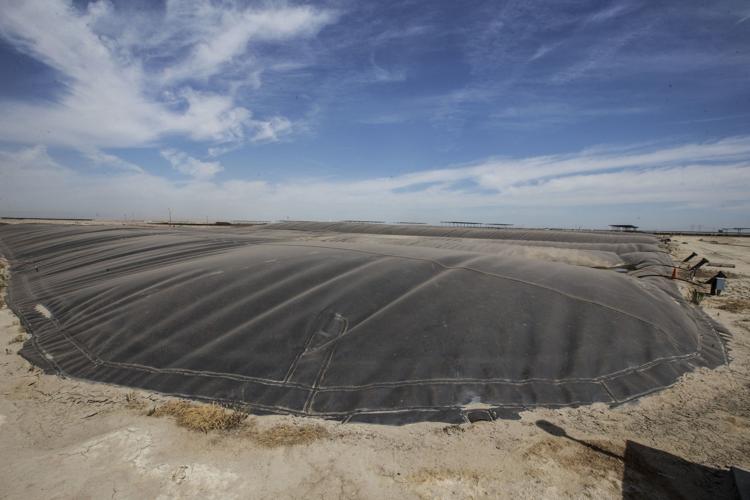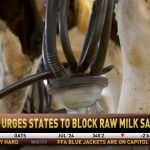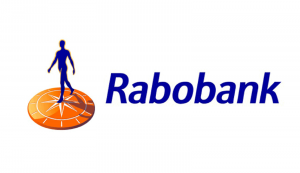
A dairy in Wasco has applied for permission to bulk up its herd, providing the latest example of an industry expansion trend that worries environmental groups.
Owners of Poso Creek Family Dairy #2 at 29794 Sherwood Ave. propose to add 3,700 milk cows — an 89% jump that would bring the facility’s total to 7,840 head.
The agency reviewing the application, the San Joaquin Valley Air Pollution Control District, has indicated it preliminarily expects to approve the request. It recently opened a 30-day public comment period on the proposal.
Environmental groups have decried dairy expansions they consider a threat to local air and water quality. They are asking state policymakers to step in with new limits on dairy expansions.
“California’s massive mega-dairies are incredibly harmful to family-scale farmers, rural communities, public health and our planet,” California Director Chirag Bhakta at Washington, D.C.-based Food & Water Watch said by email Monday. “These industrial facilities are raising more animals than ever before, producing unprecedented amounts of waste, polluting our air and water and increasing methane emissions.”
Representatives of the dairy and others within the industry in California did not respond to requests for comment Monday.
Dairies are among the top producers of ag revenue in Kern County. The most recent data available indicates milk-related revenue in the county came to $947 million in 2022, an increase of 38% over the prior year.
Poso Creek Family Dairy #2 proposes to reduce the environmental impact of its proposed expansion, while also supplementing its income, by diverting its liquid manure to a so-called digester system under construction at a sister dairy located in Wasco.
Digesters, which cost millions of dollars and require economies of scale to make financial sense, have spread across the Central Valley in recent years. They process dairy manure to extract and refine methane for sale as a renewable transportation fuel.
Concerns about the growth of U.S. dairies, particularly in California, resurfaced in February with Food & Water Watch’s release of an analysis of data from the U.S. Department of Agriculture.
The group said the state’s average dairy herd size rose 72% between 2002 and 2022 to reach about 2,300 head. During the same period, it found, California lost about three-quarters of its family-scale dairies as the state tilted more toward what it called factory farming.
It said the problem with that trend is the amount of pollution and waste large dairies generate. According to Food & Water Watch, the 24,000 U.S. factory farms produce a combined 940 billion pounds of manure per year, or about twice as much sewage as the country’s human population.
While California does have large dairies, their average size ranks no higher than ninth among U.S. states, according to a report by Hoard’s Dairyman. Using federal data, the news source reported in January that New Mexico led the nation in average herd size in 2021, followed by Arizona and then Colorado.
In an email Monday, Co-Executive Director Phoebe Seaton at the Fresno-based Leadership Counsel for Justice and Accountability cited concerns that herd expansion and continued concentration of cows and waste will worsen air and water pollution.
Seaton blamed state policy for financial incentives she said make it more attractive for dairy owners to increase the size of their herds.
“Various subsidies designed to encourage the conversion of waste to gas seem — as evident in (Poso Creek Family Dairy #2’s) expansion — contribute to the concentration of pollution,” she wrote.
You can now read the most important #news on #eDairyNews #Whatsapp channels!!!
🇺🇸 eDairy News INGLÊS: https://whatsapp.com/channel/0029VaKsjzGDTkJyIN6hcP1K


















